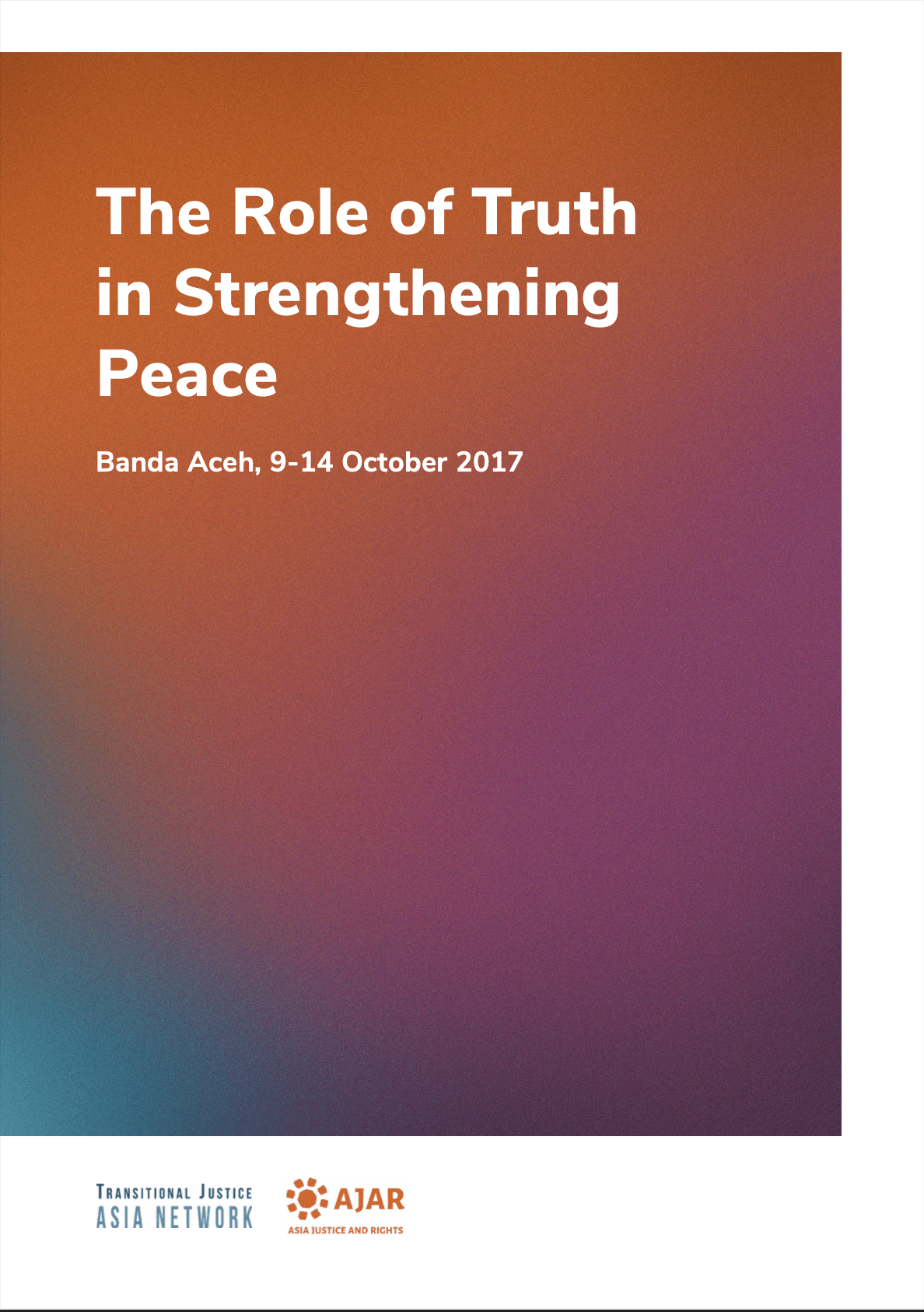Transitional justice is an approach to systematic or massive human rights violations that both provide redress to victims and create or enhance opportunities for transforming the political systems, conflict, and other conditions that may have been at the root of the abuses. As an element of the transitional justice framework, truth commissions have becomecommon components of the post-conflict policy, with parties involved in negotiations and agreements related to peace processes.
Peace processes in Aceh, Mindanao, Thailand, Sri Lanka, and Nepal have established truth commissions and incorporated material support to victims to quell dissatisfaction and dissent. Truth and reconciliation commissions have also been established and completed in Timor-Leste (including a follow-up bilateral commission with Indonesia), South Korea, and Thailand. Innovative mechanisms and programs, such as a commission for good governance in the Philippines mandated to seek and retrieve Marcos’ “ill-gotten wealth” for use as reparations, and the work of Indonesia’s national human rights institutions show innovation in the face of adversity. Other truth commissions were promised for Indonesia (on a national level and as part of Papua’s special autonomy), Sri Lanka, and other contexts. Meanwhile, Myanmar’s national peace process remains fragile due to ongoing military interventions.
Asia Justice and Rights (AJAR), together with the other members of the Transitional Justice Asia Network (TJAN)—KontraS Aceh or Commission for the Disappeared and Victims of Violence (Indonesia), ND-Burma or Network for Human Rights Documentation Burma (Myanmar), Suriya Women’s Development Centre (Sri Lanka), Alternative Law Groups (Philippines) and the CrCF or the Cross Cultural Foundation (Thailand)— convened a six-day workshop on “The Role of Truth in Strengthening Peace in Asia” from 9 to 14 October 2018. The additional contexts of South Korea and Timor-Leste were also included through the participation
of the Transitional Justice Working Group (South Korea) and Centro Nacional Chega! (Timor-Leste). In the forum, workshop participants reflected upon the achievements and weaknesses of transitional justice approaches, particularly truth-seeking mechanisms in Asia, and strategised ways to strengthen current interventions.
